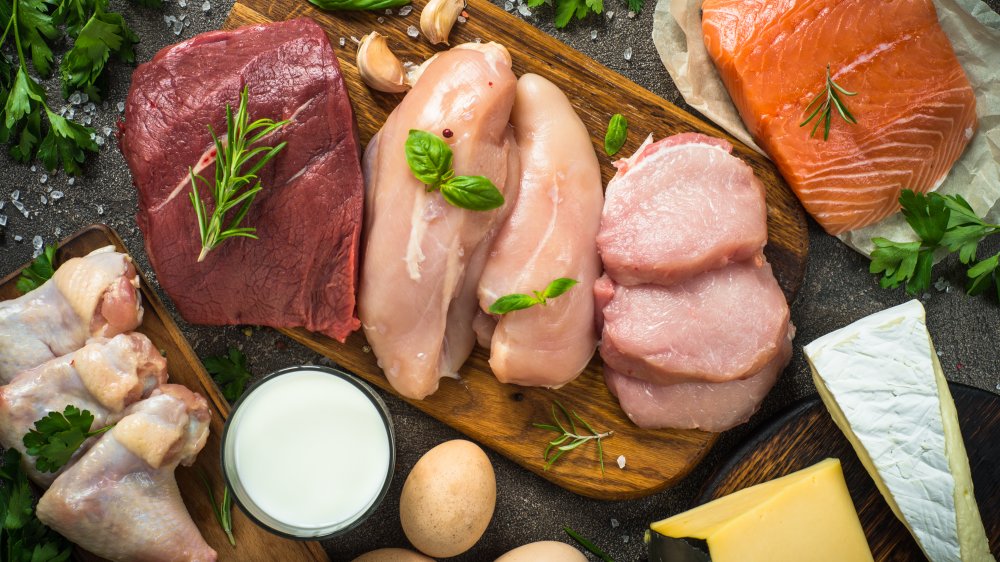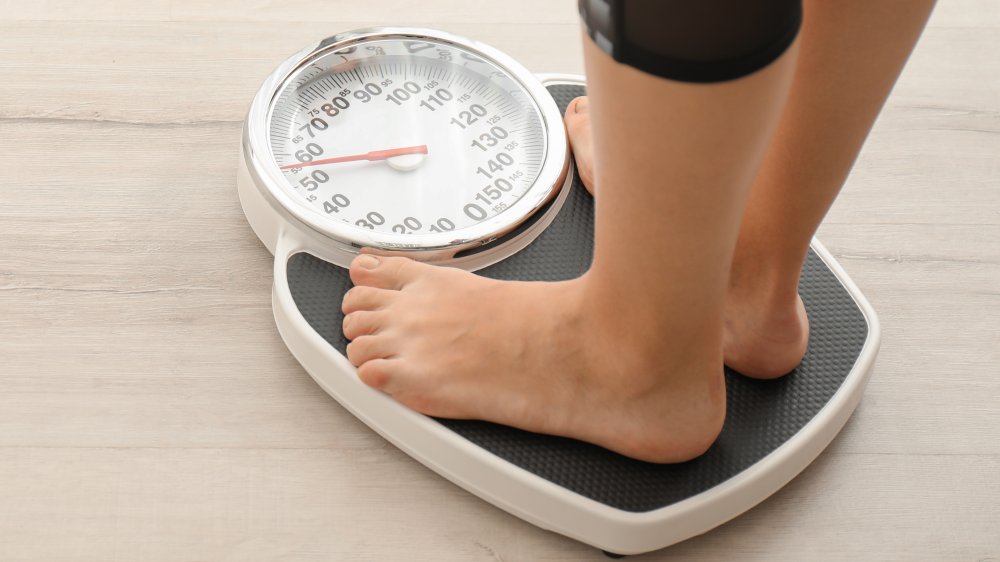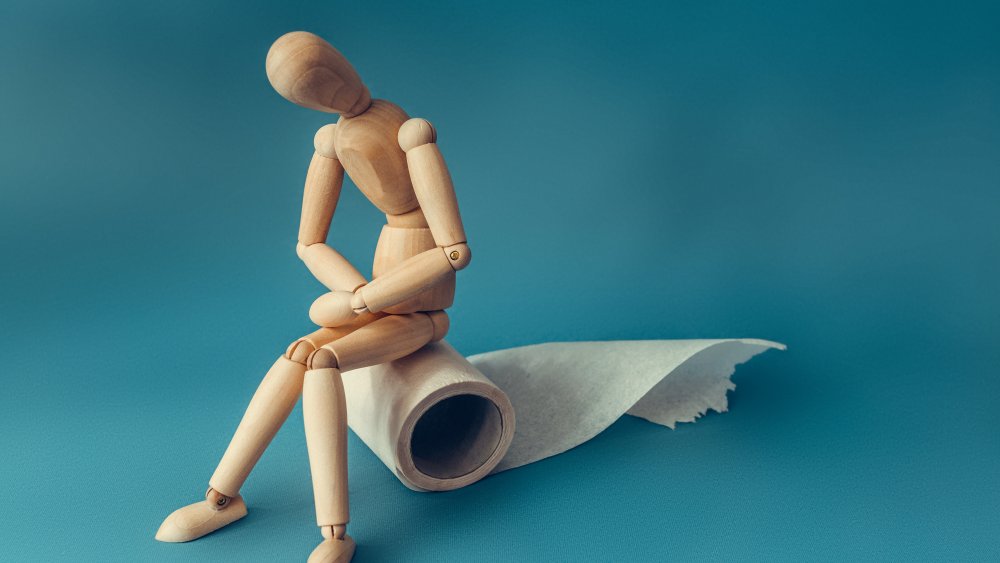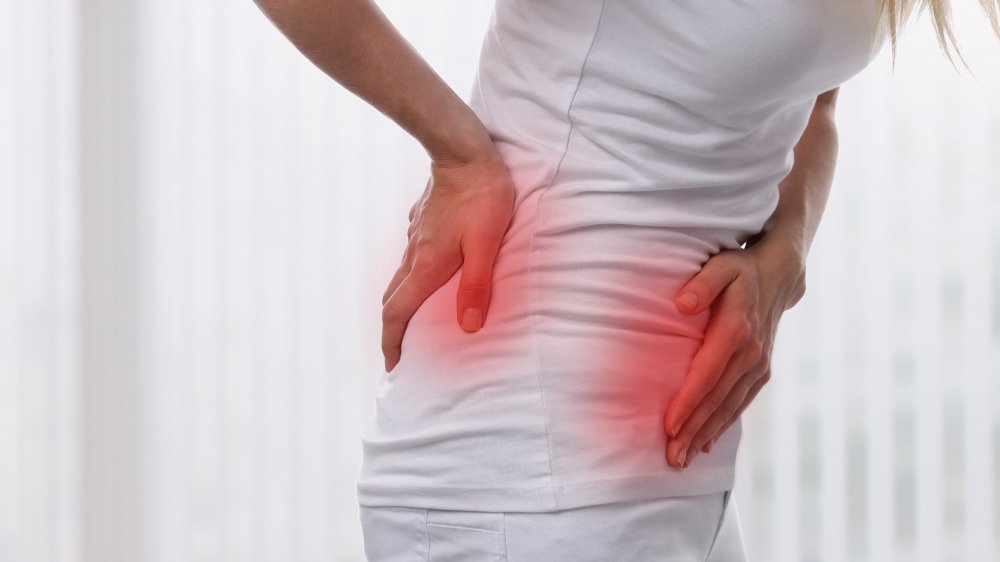You Might Be Eating Too Much Protein. Here's How To Tell
Many of us have been on one high-protein diet or another to try and get into shape. And we're pretty spoiled for choice when it comes to finding the protein diet that's right for us — with options including the Atkins, Paleo, Zone, and South Beach diets. Other than being a helpful tool for weight loss, protein is also important for our bodies, as this macronutrient delivers the amino acids to repair and maintain muscles (via VeryWellFit).
While you may know you can get too little protein, what about if you go overboard on the nutrient? There is an RDA for the amount of protein we consume. The baseline is 0.8 grams per kilogram of body weight (to get that, divide your weight by 2.2 and then multiply that by 0.8), according to Harvard Medical School. That number goes up to between 1.2 to 1.7 grams per kilogram if you lift weights or are in training (via Women's Health). So how do you know when you've had too much?
Eating too much protein can make you gain weight
While high-protein diets may be important to weight loss, eating too much protein means you're still loading your body down with calories that it doesn't need. Liz Weinandy, a registered dietitian with the Ohio State Wexner Medical Center tells Eat This, Not That!: "Even though higher protein diets have been shown to help some people lose weight, if you increase your overall calories, no matter where they come from, those extra calories can be turned into body fat. This is especially true if you are getting your protein from high-fat sources like cheese and fatty meats."
When this happens, you'll want to move away from a high-fat, protein-heavy diet and eat more balanced meals which include lean protein, whole grains, as well as fruits and vegetables, dietitian Kaleigh McMordie tells Reader's Digest.
Eating too much protein can upset your stomach
It is to be expected that our bodies start to rebel when we've given it too much of one thing. When you eat a high protein diet over a long period of time, the Mayo Clinic warns that your carbohydrate intake might get so restricted that you end up with a nutritional shortage — and this shortfall is likely to lead to problems like constipation and diarrhea.
What's more, a protein-based diet that restricts carbs tends to also lower your consumption of essential fiber, which helps to regulate your digestive track. Without enough fiber, you're likely to experience painful constipation. On the other end of the spectrum, eating too much protein-rich dairy can also lead to diarrhea — particularly if you are lactose intolerant and you don't know it (via Healthline).
Eating too much protein can cause kidney pain
Another danger of eating too much protein is the harm it can cause to your kidneys, which breaks down nutrients from food and removes what your body doesn't need. "While this is normal, if we eat really large amounts of protein especially for a long time, it can stress the kidneys," Weinandy says (via Eat This! Not That). "For people who may have years of high blood pressure or diabetes or take drugs that are hard on the kidneys, adding large amounts of protein to any of these conditions can really stress the kidneys out."
If you're on the fence about giving up your protein diet, Weinandy recommends looking to include more plant-based proteins, including lentils and nuts, which are gentler on this hard-working organ.



